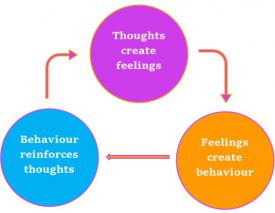Doncaster Child and Adolescent Mental Health Service offers a range of psychological therapies for children aged 5-18 years old and their families. Referrals for therapy are made following an assessment by other CAMHS staff and discussion with the child or young person and their family. Unfortunately, there is a waiting list but families will be supported by other staff within CAMHS or other agencies whilst they are waiting. There are also some online resources in the ‘Useful Links’ section of this website that may be helpful.
The Psychological Therapy pathway is able to offer a range of different therapies including Compassion Focussed Therapy, Cognitive Behavioural Therapy, Family Therapy and Child Psychotherapy. These may be offered on their own or with another approach depending on the needs of the child and family, their preferences and clinical guidance and the available evidence base. There are several different staffs within the pathway e.g. Clinical Psychologists and therapists trained in specific kinds of therapies. More information on the different staff within CAMHS can be found in the Our People section of this website. More information about the different kinds of therapy is below
Cognitive Behavioural Therapy
A therapy that supports a child or family to work on their difficulties by learning about the connections between thoughts, behaviours, physical body responses and the impact these can have on feelings.
Family Therapy
When one member of a family has a difficulty, it tends to impact on everyone in the family. Often solving a problem or difficulty for a child or young person requires support from family members. Family therapy is a kind of therapy that helps families work together to improve relationships and to support each other in finding solutions to problems resulting from mental health difficulties.

Clinical Psychology – It can be helpful to have a more detailed assessment of what is going on for a child and/or their family. The clinical psychologists in the service can offer more detailed assessments, including, for example formal assessment measures like psychometric assessment. These more detailed assessments can lead to an individualised understanding of a young person’s mental health presentation and recommendations for moving forwards.
Referral to the therapy pathway usually happens once a young person has been offered a service through their locality workers, and the child, family and locality worker agree that a more formal therapeutic intervention might be of benefit.